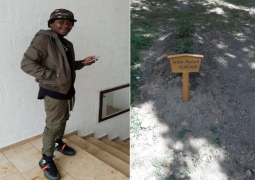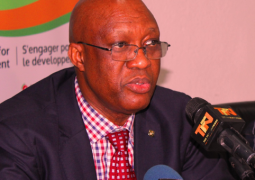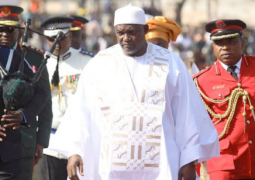
He also ordered them to pay a fine of D250,000 each in default to serve two years imprisonment. He ordered that the three cartons of medicines which were tendered by the prosecution should be forfeited to the Medicine Control Agency. He ordered the police to check whether there are other medicines kept by the convicts at their place of business and confiscate them. This development followed the convicts’ plea of guilt.
They pleaded guilty on the 23rd September, 2024, when they were arraigned before the court. The presiding magistrate then adjourned the case for judgement. Before the judgement was read, the prosecuting officer, Nuha Bajang, rose and told the court that the convicts were previously convicted by former magistrate, Isatou Janneh-Njie, who is now a judge, on similar offences. He then furnished the court with a copy of the judgement in relation to Ousman Njie. He told the court that he would provide a copy of a judgement in relation to Musa Sibi for his previous conviction.
But the defence counsel, Lawyer Edward Gomez, rose and objected that the previous conviction of the convicts had nothing to do with the case. He cited Section 3 of the Evidence Act to support his argument. Prosecutor Bojang replied on points of law and asserted that the revelation of the previous conviction of the convicts to the court was relevant. “Your Worship, by virtue of Section 3 of the Evidence Act, the copy of the judgement of the previous conviction of the convicts is relevant. Relevance has to do with admissibility,” he submitted and took back his seat.
The presiding magistrate ruled that the copy of the judgement of the previous conviction of the convicts was relevant for the determination of the case. He further said that it was premature for the prosecutor to tender the copy of the judgement of the previous conviction of the convicts at that moment. “You should wait until the accused are convicted. You can then tender a copy of their previous conviction,” he told the prosecutor.
Defence Counsel Gomez then succumbed and stated that he was no more objecting to the tendering of the copy of the judgement of the previous conviction of the convicts for the case to proceed.
In his judgement, Magistrate Touray posited that the convicts did not learn a lesson from their previous conviction. He said that the offences with which the convicts were charged were serious and they carry a fine not exceeding D500,000 and not exceeding a sentence of 5 years imprisonment.
In his mitigation on behalf of the convicts, the defence counsel urged the court to temper justice with mercy. “Your Worship, the convicts are family men with wives and children and grandchildren. They have shown remorse to the court. This is why they pleaded guilty without wasting the time of the court. I know that the offences with which they are charged are very serious. You can see how embarrassed they are. We are either Muslims or Christians and when we repent, God forgives us,” he pleaded with the court.
It could be recalled that the convicts faced counts of selling prohibited medicines and also selling them in a place which is not conducive. They earlier confirmed to the court that they did not have a pharmacy or a medicine store and that they placed their medicines on a table and sold them to the public. They did not also register their business. They revealed that they were doing this business for seven years.





